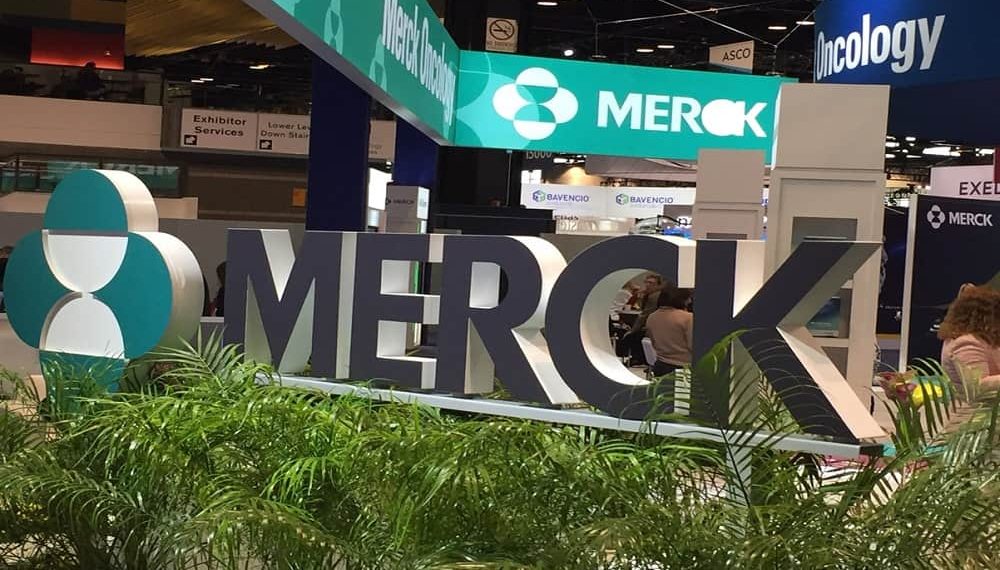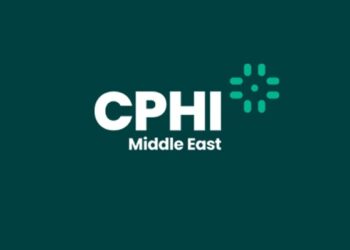Merck, known as MSD outside the United States and Canada, announced that the U.S. FDA has approved an expanded label for KEYTRUDA, Merck’s anti-PD-1 therapy, as monotherapy for the treatment of adult patients with relapsed or refractory classical Hodgkin lymphoma (cHL). The approval is based on results from the Phase 3 KEYNOTE-204 trial in which KEYTRUDA significantly reduced the risk of disease progression or death by 35% (HR=0.65 [95% CI, 0.48-0.88; p<0.0027]) compared to brentuximab vedotin (BV). Additionally, median progression-free survival (PFS) was 13.2 months (95% CI, 10.9-19.4) for patients treated with KEYTRUDA and 8.3 months (95% CI, 5.7-8.8) for patients treated with BV. The FDA also approved an updated pediatric indication for KEYTRUDA for the treatment of pediatric patients with refractory cHL, or cHL that has relapsed after two or more lines of therapy.
“An estimated 8,500 patients in the U.S., many of them 40 years of age or younger, will be diagnosed with cHL this year. Now patients with cHL who progress after frontline therapy have a new option in KEYTRUDA, which has demonstrated a clinically meaningful improvement in progression-free survival compared to brentuximab vedotin,” said Dr. Vicki Goodman, vice president, clinical research, Merck Research Laboratories. “At Merck, we are committed to improving outcomes for patients with cancer. Today’s FDA approval builds upon our growing range of options for people with blood cancers.”
Immune-mediated adverse reactions, which may be severe or fatal, can occur with KEYTRUDA, including pneumonitis, colitis, hepatitis, endocrinopathies, nephritis, severe skin reactions, solid organ transplant rejection, and complications of allogeneic hematopoietic stem cell transplantation (HSCT). Based on the severity of the adverse reaction, KEYTRUDA should be withheld or discontinued and corticosteroids administered if appropriate. KEYTRUDA can also cause severe or life-threatening infusion-related reactions. Based on its mechanism of action, KEYTRUDA can cause fetal harm when administered to a pregnant woman. For more information, see “Selected Important Safety Information” below.
“The patients with cHL who do not achieve remission following initial treatment or who relapse after transplantation face a poor prognosis, reflecting the unmet need for improved therapies in the relapsed/refractory setting,” said Dr. John Kuruvilla, hematologist and associate professor of medicine, Princess Margaret Cancer Centre and University of Toronto. “With this approval, KEYTRUDA has the potential to change the current standard of care and help these patients achieve better outcomes.”
KEYTRUDA was previously approved under the FDA’s accelerated approval process for the treatment of adult and pediatric patients with refractory cHL, or who have relapsed after three or more prior lines of therapy based on data from the KEYNOTE-087 trial. In accordance with accelerated approval regulations, continued approval was contingent upon verification and description of clinical benefit; these accelerated approval requirements have been fulfilled with the data from KEYNOTE-204.
This approval was reviewed under the FDA’s Project Orbis, an initiative of the FDA Oncology Center of Excellence that provides a framework for concurrent submission and review of oncology drugs among its international partners. For this application, a modified Project Orbis was undertaken, and the FDA is collaborating with the Australian Therapeutic Goods Administration and Health Canada on their ongoing review of the application.
About the Merck Access Program for KEYTRUDA
At Merck, we are committed to supporting accessibility to our cancer medicines. Merck provides multiple programs to help appropriate patients who are prescribed KEYTRUDA have access to our anti-PD-1 therapy. The Merck Access Program provides reimbursement support for patients receiving KEYTRUDA, including information to help with out-of-pocket costs and co-pay assistance for eligible patients.
About Merck’s Patient Support Program for KEYTRUDA
Merck is committed to helping provide patients and their caregivers support throughout their treatment with KEYTRUDA. The KEY+YOU Patient Support Program provides a range of resources and support.
About Merck
For more than 125 years, Merck, known as MSD outside of the United States and Canada, has been inventing for life, bringing forward medicines and vaccines for many of the world’s most challenging diseases in pursuit of our mission to save and improve lives. We demonstrate our commitment to patients and population health by increasing access to health care through far-reaching policies, programs and partnerships. Today, Merck continues to be at the forefront of research to prevent and treat diseases that threaten people and animals – including cancer, infectious diseases such as HIV and Ebola, and emerging animal diseases – as we aspire to be the premier research-intensive biopharmaceutical company in the world.



















